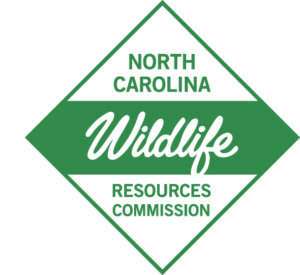Carolina Backyard Naturalist (11/17/21)
go.ncsu.edu/readext?718242
en Español / em Português
El inglés es el idioma de control de esta página. En la medida en que haya algún conflicto entre la traducción al inglés y la traducción, el inglés prevalece.
Al hacer clic en el enlace de traducción se activa un servicio de traducción gratuito para convertir la página al español. Al igual que con cualquier traducción por Internet, la conversión no es sensible al contexto y puede que no traduzca el texto en su significado original. NC State Extension no garantiza la exactitud del texto traducido. Por favor, tenga en cuenta que algunas aplicaciones y/o servicios pueden no funcionar como se espera cuando se traducen.
Português
Inglês é o idioma de controle desta página. Na medida que haja algum conflito entre o texto original em Inglês e a tradução, o Inglês prevalece.
Ao clicar no link de tradução, um serviço gratuito de tradução será ativado para converter a página para o Português. Como em qualquer tradução pela internet, a conversão não é sensivel ao contexto e pode não ocorrer a tradução para o significado orginal. O serviço de Extensão da Carolina do Norte (NC State Extension) não garante a exatidão do texto traduzido. Por favor, observe que algumas funções ou serviços podem não funcionar como esperado após a tradução.
English
English is the controlling language of this page. To the extent there is any conflict between the English text and the translation, English controls.
Clicking on the translation link activates a free translation service to convert the page to Spanish. As with any Internet translation, the conversion is not context-sensitive and may not translate the text to its original meaning. NC State Extension does not guarantee the accuracy of the translated text. Please note that some applications and/or services may not function as expected when translated.
Collapse ▲North Carolina Mammals
Explore the mammals that live in North Carolina. Learn about their biology, behavior, habitat preferences, roles in ecosystems, and any cool, new research being done by the North Carolina Wildlife Resources Commission. Discover programs where you can take an active role as a conservation steward of these important species. Topics include:
- Mammal species present throughout and in specific regions of the state
- Biology and reproductive strategies; adaptations for species’ survival
- Human-wildlife interactions and challenges with management decisions
- Ways to report wildlife to help biologists
Presenter: Rebecca Skiba
Regional Education Specialist, North Carolina Wildlife Resources Commission
Becky Skiba has worked in Environmental Education since 2009. She has worked in the southeastern states of Georgia, South Carolina, Mississippi, and now North Carolina. She has assisted with research monitoring nesting sea turtles and wood storks with the US Fish and Wildlife Service and Georgia Dept. of Natural Resources. Becky has taught at the Jekyll Island 4-H camp on coastal habitats, ecosystems, and wildlife. She worked as assistant director for a non-profit eco-tourism group in Savannah, GA, leading tours through the many habitats of the coastal ecosystem by boat, canoe/kayak, bike, and on foot. She has worked with Audubon Mississippi after the BP Oil Spill on community education and volunteer efforts to establish a baseline population of waterbirds affected by the spill.
Presentation Slides
Mammals of NC_complete Skiba, Becky Oct. 2020 Part 1
Mammals of NC_complete Skiba, Becky Oct. 2020 Part 2
Mammals of NC_complete Skiba, Becky Oct. 2020 Part 3
Additional Resources
eMammal – Smithsonian Institution
Habitats and Ecoregions of North Carolina
Have a Wildlife Problem? NC WRC
Protected Wildlife Species of North Carolina
Wildlife Diversity Program – NC WRC
North Carolina Bat Acoustic Survey Volunteer Website





